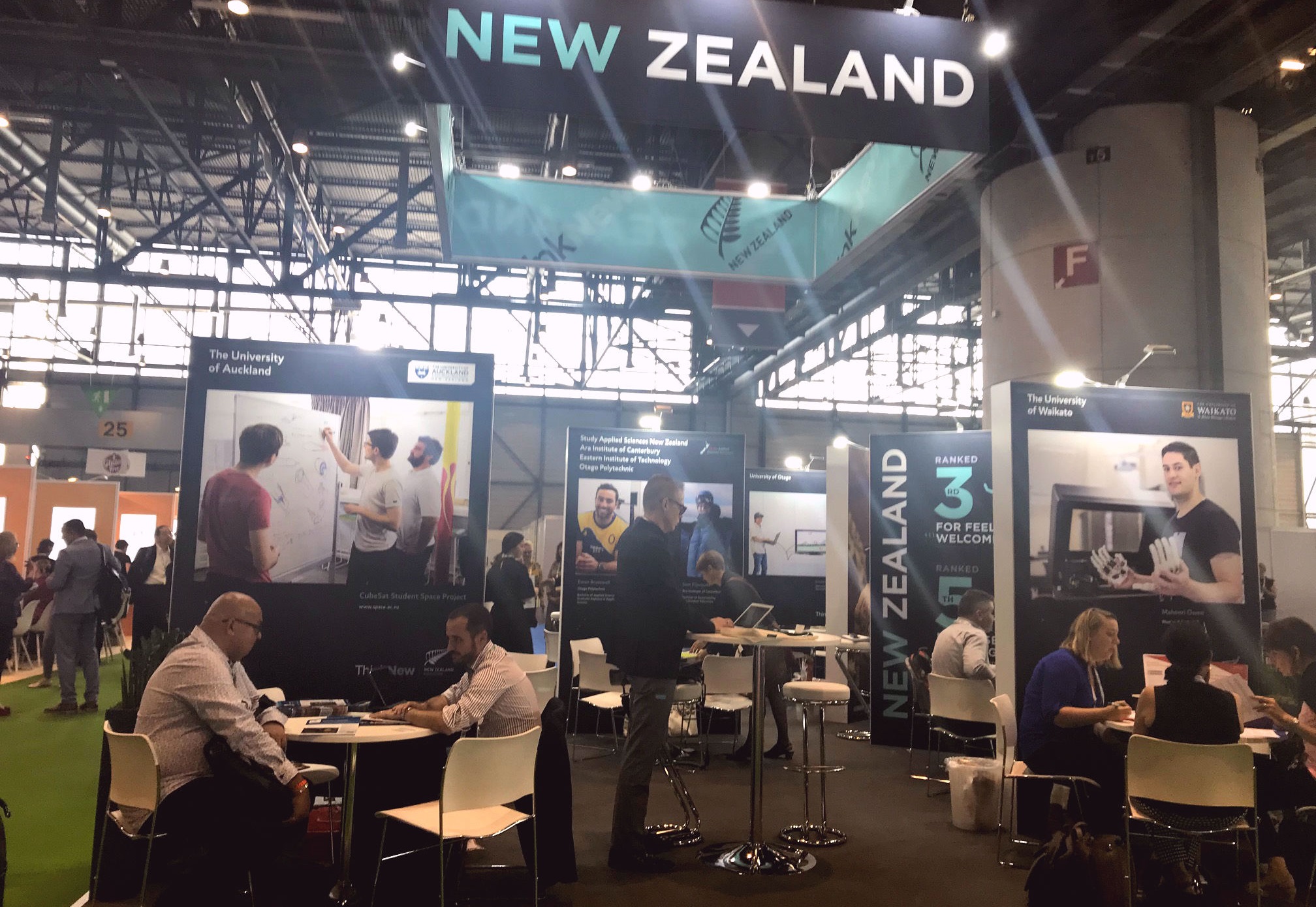26 September 2018 at 9:00 am
Education opportunities in Europe
ENZ joined forces with New Zealand universities and ITPs in Europe in September for the annual EAIE conference, gaining market insights and exploring new opportunities for growth, particularly in France.

Representatives of all eight New Zealand universities and three ITPs were among the 5,700 tertiary education professionals at the European Association of International Education (EAIE) conference, held in Geneva from 11-14 September.
The EAIE conference is the second largest for international education after NAFSA in the US, with attendees from 95 countries.
New Zealand institutions reported excellent levels of partner engagement throughout the week, boosted by the networking reception that ENZ hosted at the residence of New Zealand’s Permanent Representative to the WTO in Geneva.
Ahead of EAIE, ENZ Chief Executive Grant McPherson and Regional Director Americas & Europe Lisa Futschek visited three key European markets – France, Germany and the UK – to gain deeper market insights, identify market-specific barriers and explore opportunities for growth.
“Each market has different opportunities and challenges. Germany is New Zealand’s largest source of students in Europe, while the UK is our most important tertiary market. Student numbers from France are the second highest, with the majority of these enrolled in English language schools,” said Lisa.
“Understanding these markets is key for New Zealand providers looking to attract international students from there but this needs to be bolstered by relationship-building with education officials and agents in the market.”
This year, ENZ has put significant effort into opening up the French market, including hosting a reception at the New Zealand Embassy in Paris this month to raise engagement with French agents (who play a key role in the market) and to increase awareness of New Zealand education with members of the French Senate and National Assembly – critical at a time when the French Government is moving towards a more outward-looking education model.
“At the tertiary level, French universities are interested in partnerships with New Zealand institutions in areas such as environmental management, food security, renewable energy and creative arts. There is also a growing focus on vocational training and pathways to employment – which fits well with our current "future-proof” messaging.”
At secondary level, New Zealand institutions are encouraged to promote longer-duration high school stays.
“French high school students tend to go to New Zealand for short stays during the European summer and aren’t invested in longer-duration visits due to a perceived lack of qualification recognition,” said Lisa.
France’s NZQA-equivalent, the International Centre for Educational Studies, revealed that recognition of NCEA qualifications is considered on a case-by-case basis by applying the French national qualifications framework and the European Qualifications Framework (EQF).
“This approach opens the door to promoting longer-duration high school stays until the end of Year 13, on the basis that NCEA Level 3 is comparable to the French university entrance qualification.”
Students from Europe make up some 10% of the international student cohort in New Zealand. In 2017, 1,945 French students studied in New Zealand.


